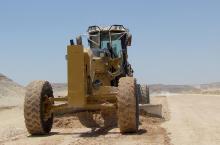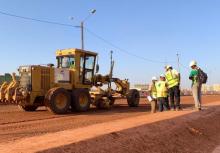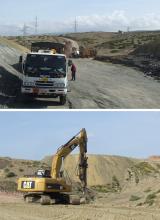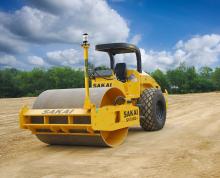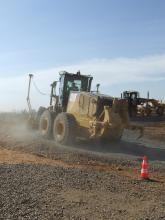Two Caterpillar 14M graders equipped with AccuGrade dual GPS systems with cross-slope capability are providing accurate finish for road construction and upgrading work on projects in the Republic of Burundi.
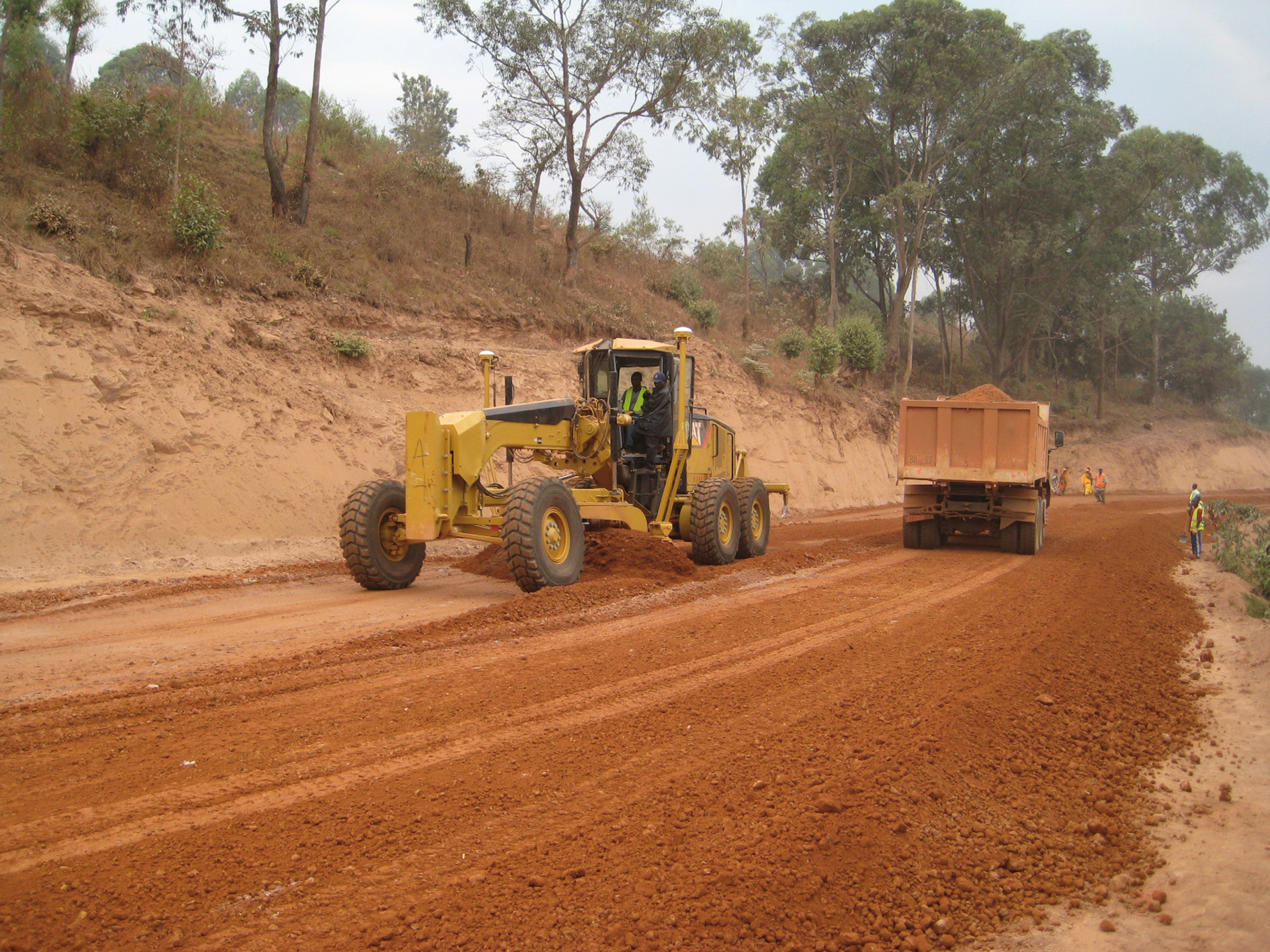
Linked with AccuGrade GPS machine control, Caterpillar's 14M is allowing the contractor to grade more.day compared to previous methods
Two 178 Caterpillar 14M graders equipped with AccuGrade dual GPS systems with cross-slope capability are providing accurate finish for road construction and upgrading work on projects in the Republic of Burundi. The machines form part of an extensive fleet of Cat equipment that includes seven track-type tractors, five excavators, two wheeled loaders and six graders. The machines are owned by contractor 1286 Sogea satom and were supplied by dealer 1287 Tractafric and are working with an AccuGrade-ready D7R II already on site. The three machines are increasing accuracy and productivity on the road project by sharing the AccuGrade machine control systems.
These two are the first AccuGrade systems being used by the contractor to replace traditional surveying and staking methods on its earthmoving projects. And the system is being thoroughly trialled on three road projects in Burundi that are valued at €70m. These include the 35km RN14 Kirundo-Gaseyni trunk road, the 104km RN12 Gitega-Muyinga trunk road and 31km of road and pavement refurbishment in capital, Bujumbura. It is reckoned that Sogea-Satom will implement this new technology in its processes in Africa, to improve machine performance and productivity on the three road building projects.
The longest section of road is the RN12 which runs through a mountainous region some 1500-1600m above sea level. Despite being heavily shadowed by trees and vegetation that could in some areas mask satellite signals, the contractor says that the AccuGrade equipment is proving accurate and reliable.
The first use for AccuGrade was with the D7R, removing 300mm of poor material to allow foundation and road base materials to be installed. Using the D7R with AccuGrade, 100 metres of road were completed in 30 minutes, vastly improving productivity. With the 14M motor graders, the quality of work has also been improved too, compared to relying on stakes every 25m.
These two are the first AccuGrade systems being used by the contractor to replace traditional surveying and staking methods on its earthmoving projects. And the system is being thoroughly trialled on three road projects in Burundi that are valued at €70m. These include the 35km RN14 Kirundo-Gaseyni trunk road, the 104km RN12 Gitega-Muyinga trunk road and 31km of road and pavement refurbishment in capital, Bujumbura. It is reckoned that Sogea-Satom will implement this new technology in its processes in Africa, to improve machine performance and productivity on the three road building projects.
The longest section of road is the RN12 which runs through a mountainous region some 1500-1600m above sea level. Despite being heavily shadowed by trees and vegetation that could in some areas mask satellite signals, the contractor says that the AccuGrade equipment is proving accurate and reliable.
The first use for AccuGrade was with the D7R, removing 300mm of poor material to allow foundation and road base materials to be installed. Using the D7R with AccuGrade, 100 metres of road were completed in 30 minutes, vastly improving productivity. With the 14M motor graders, the quality of work has also been improved too, compared to relying on stakes every 25m.

